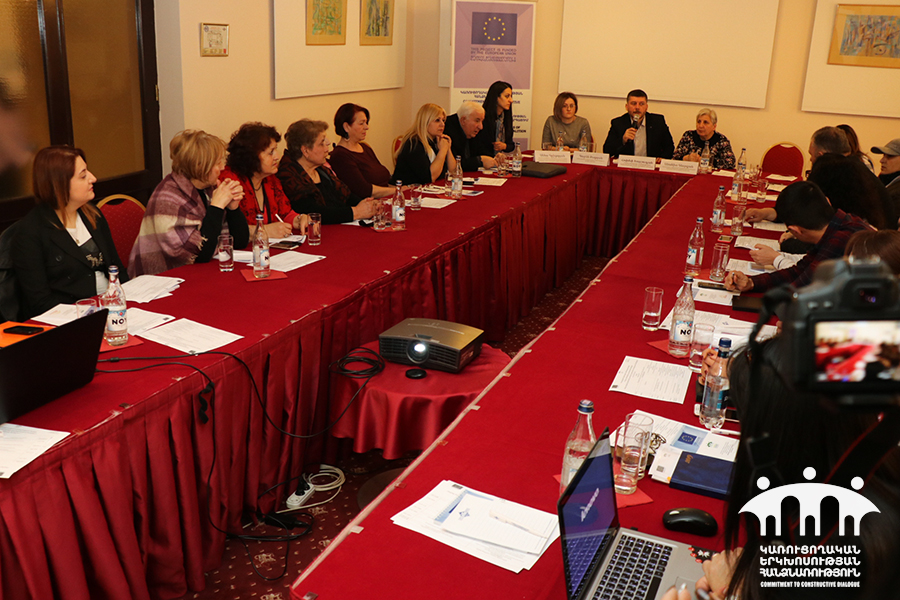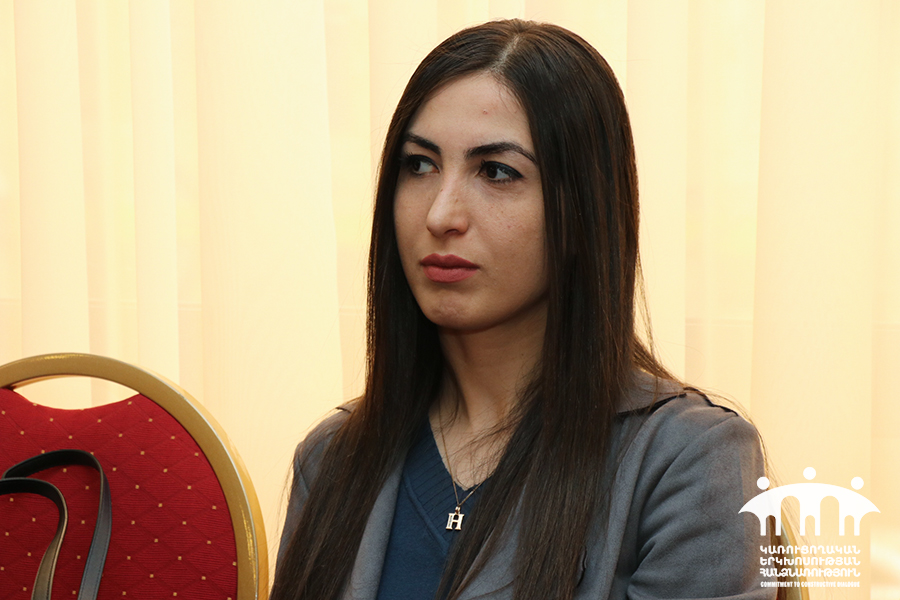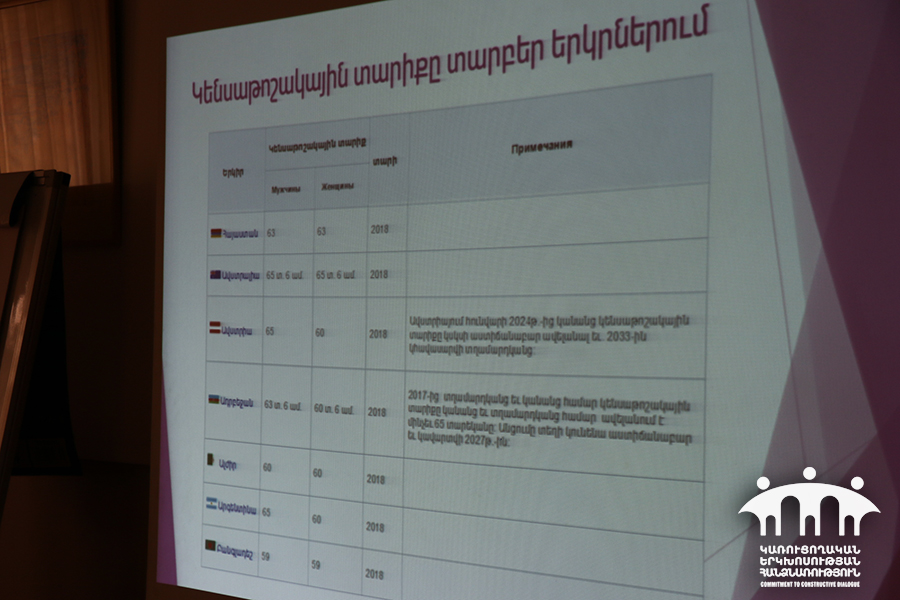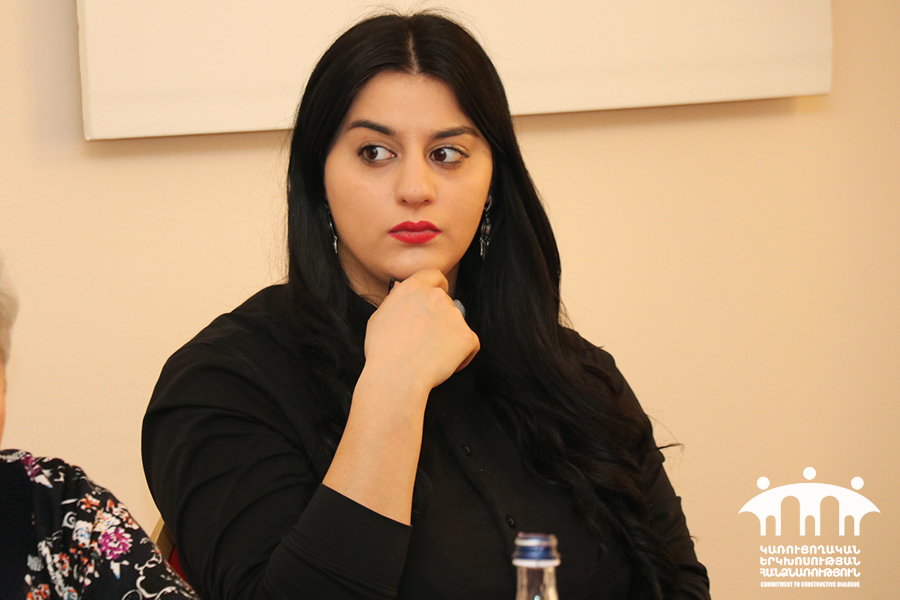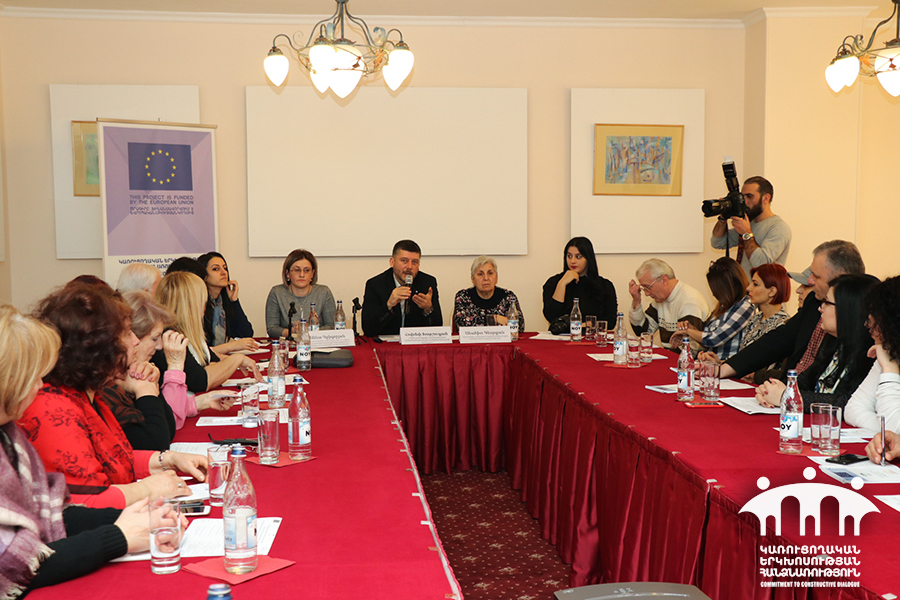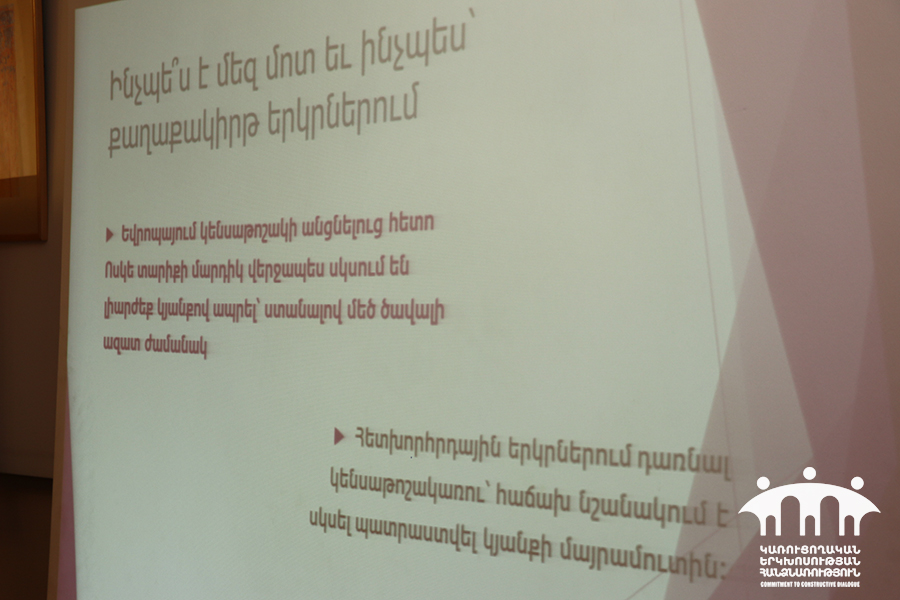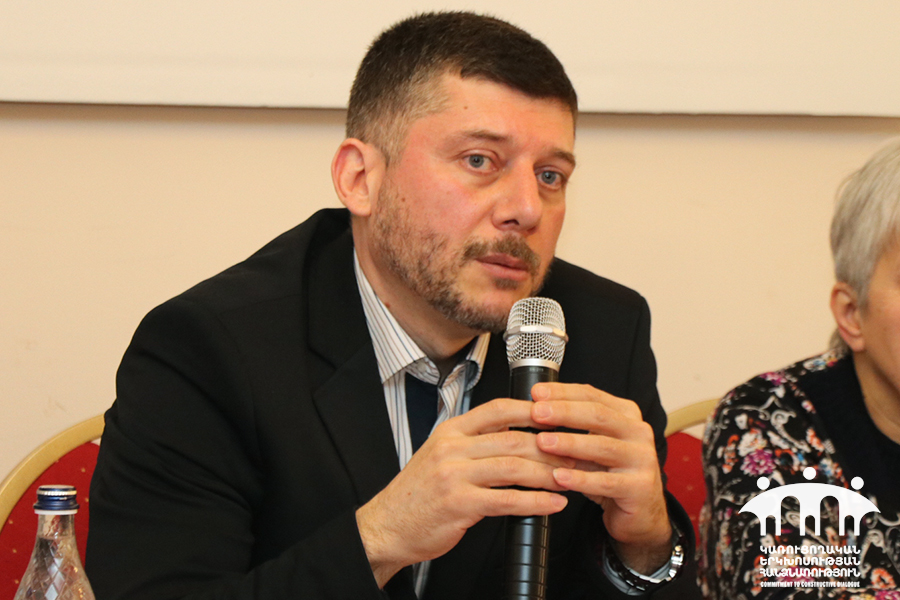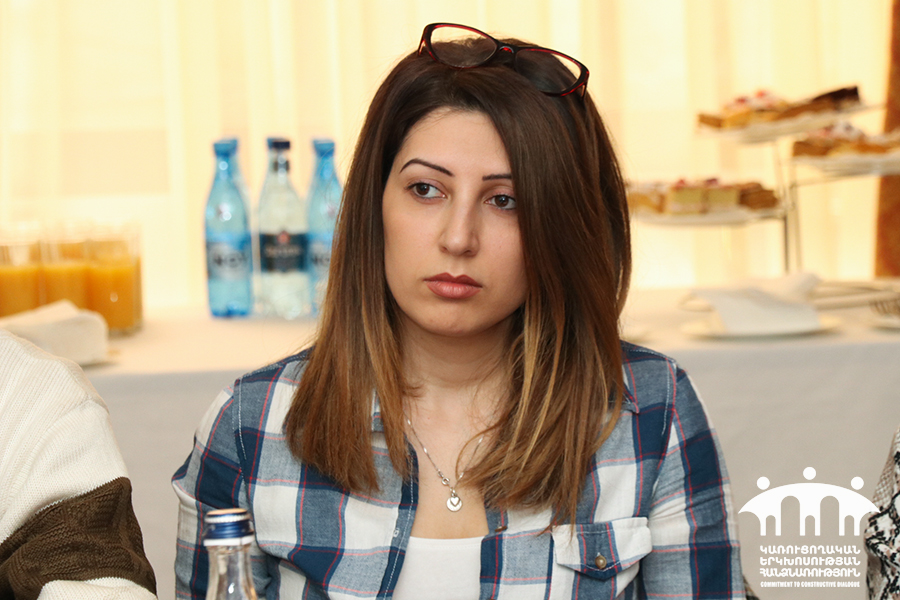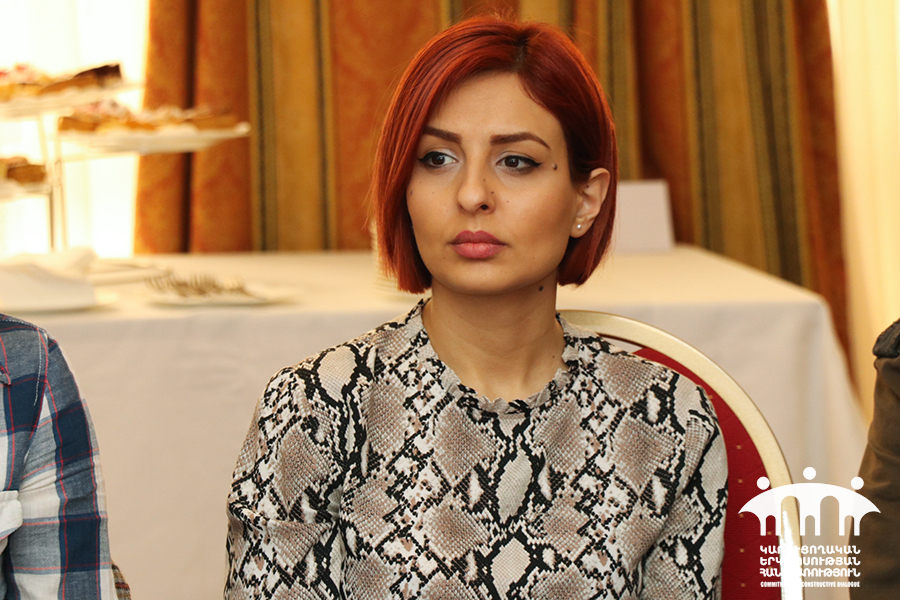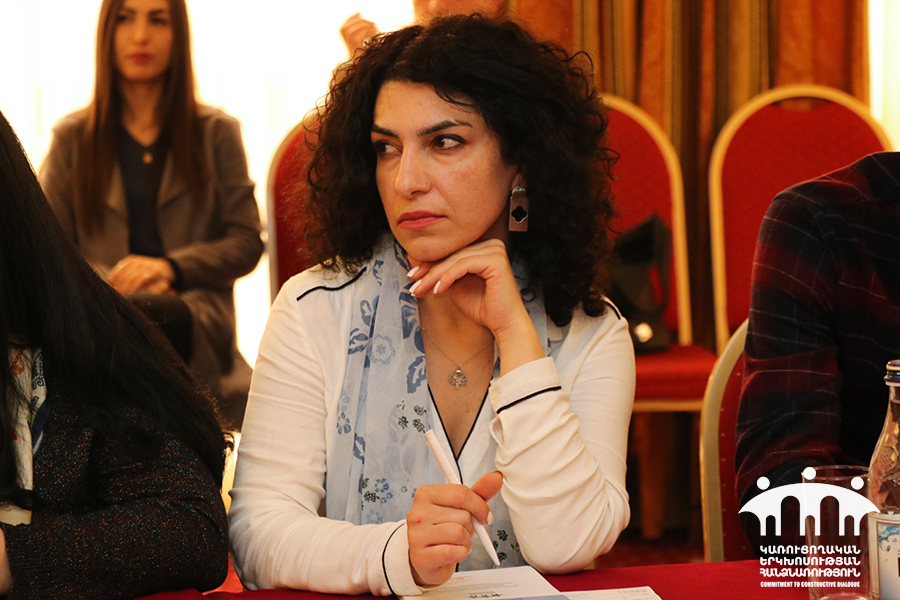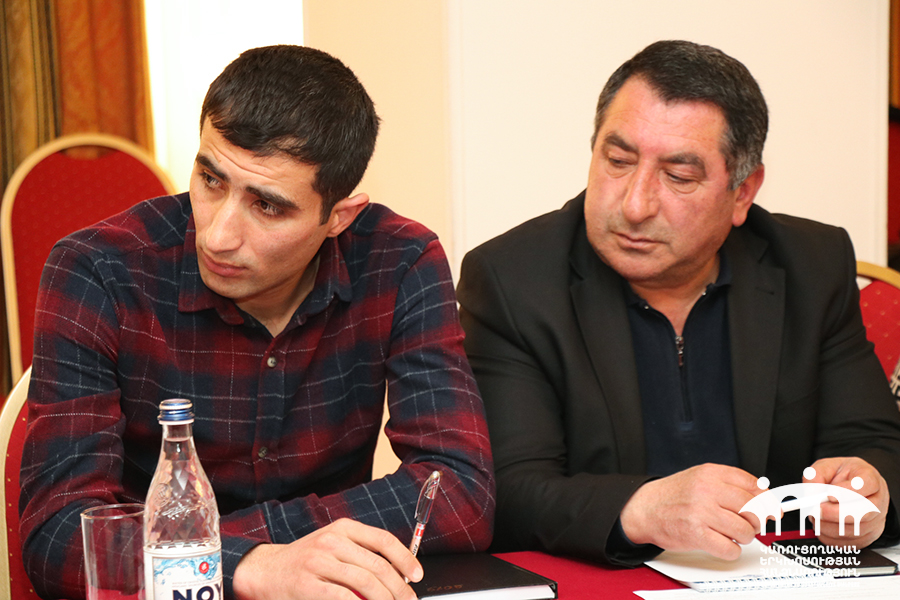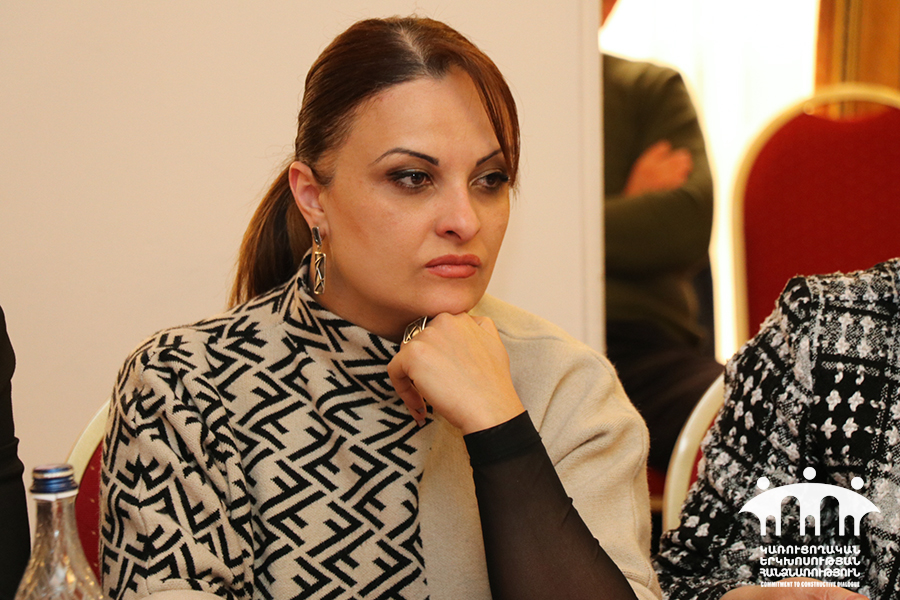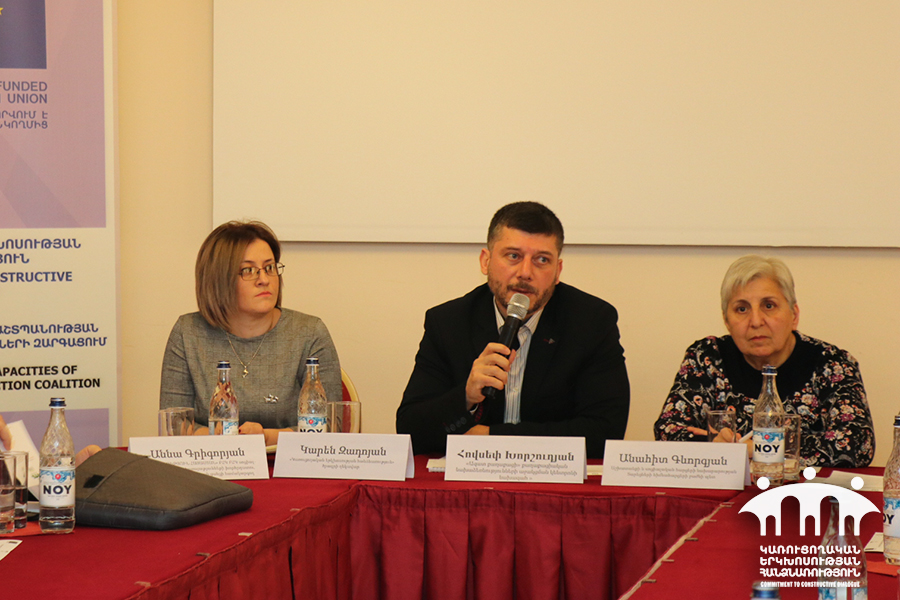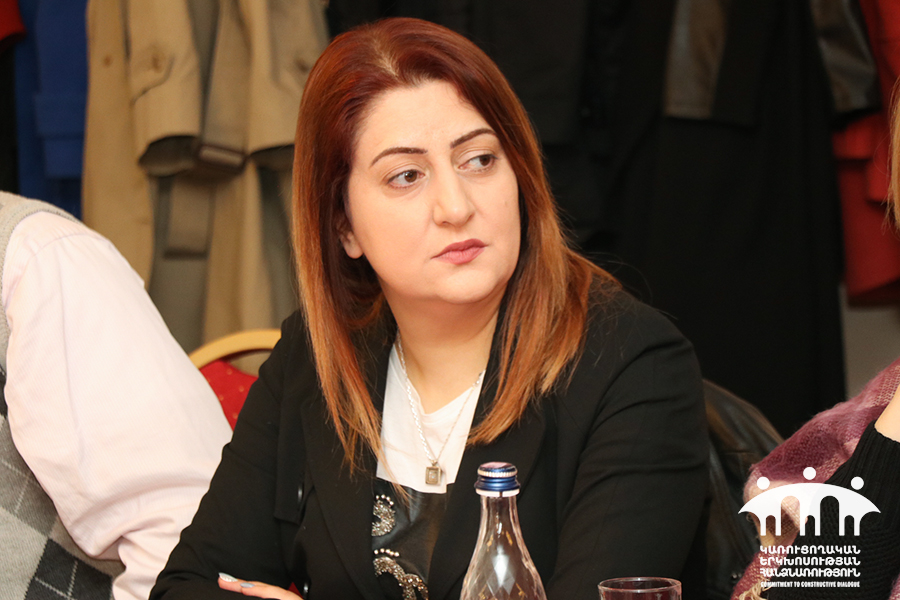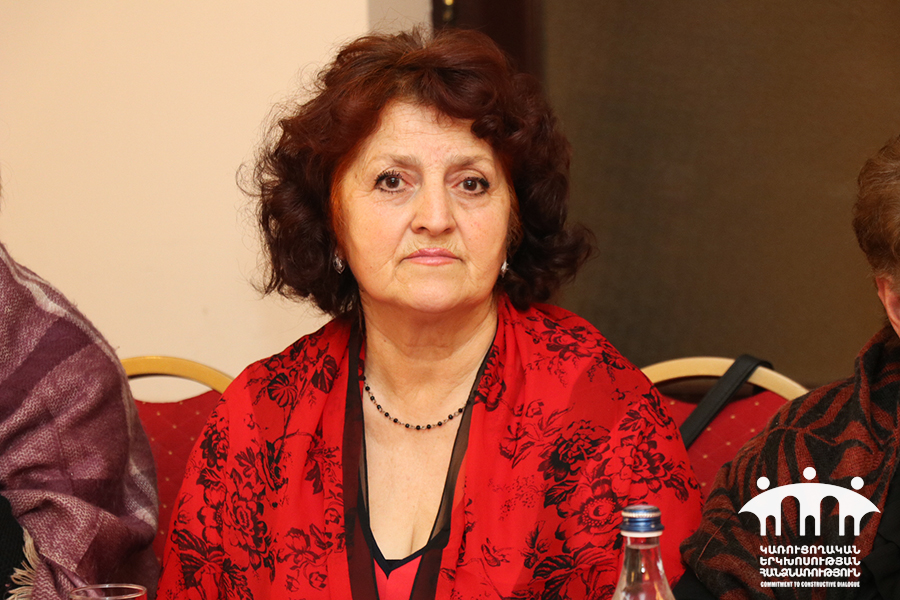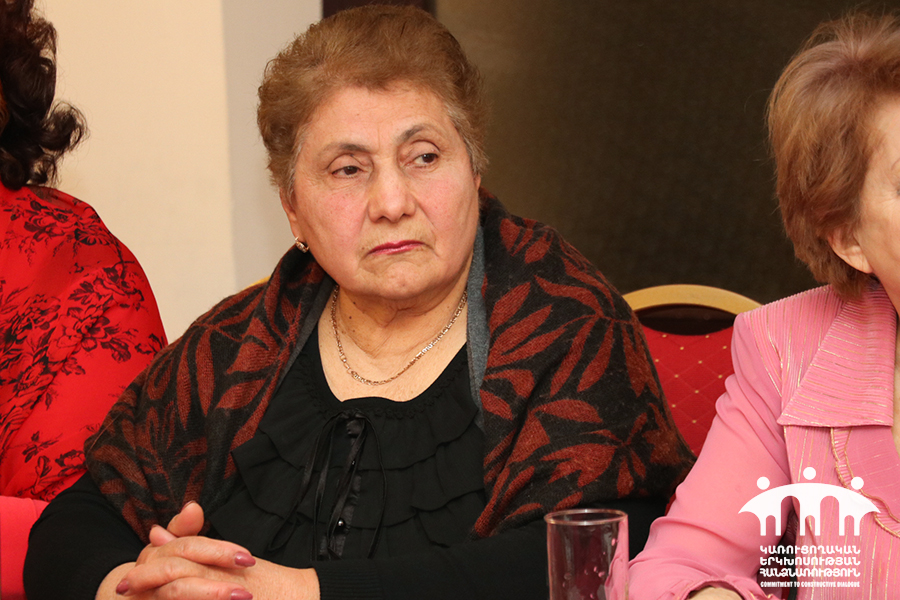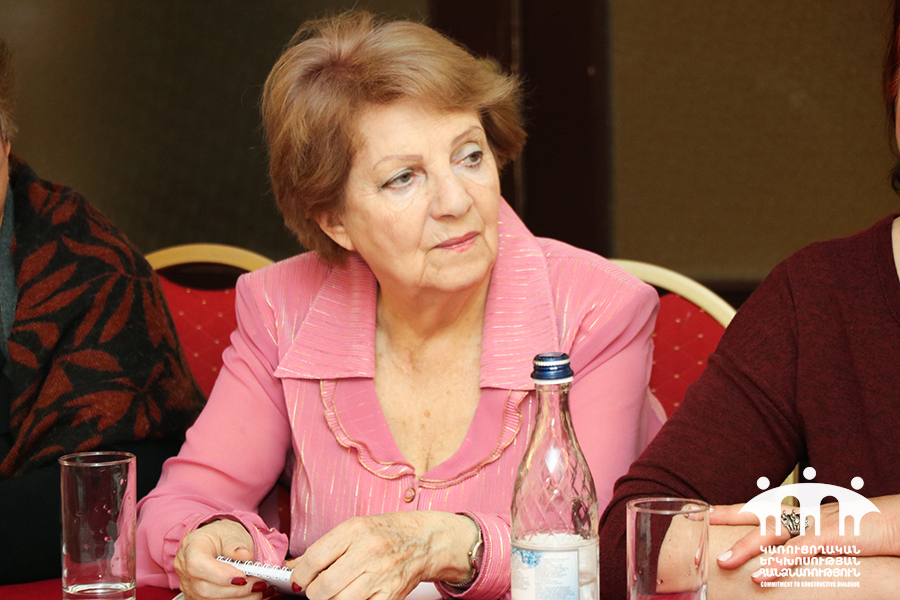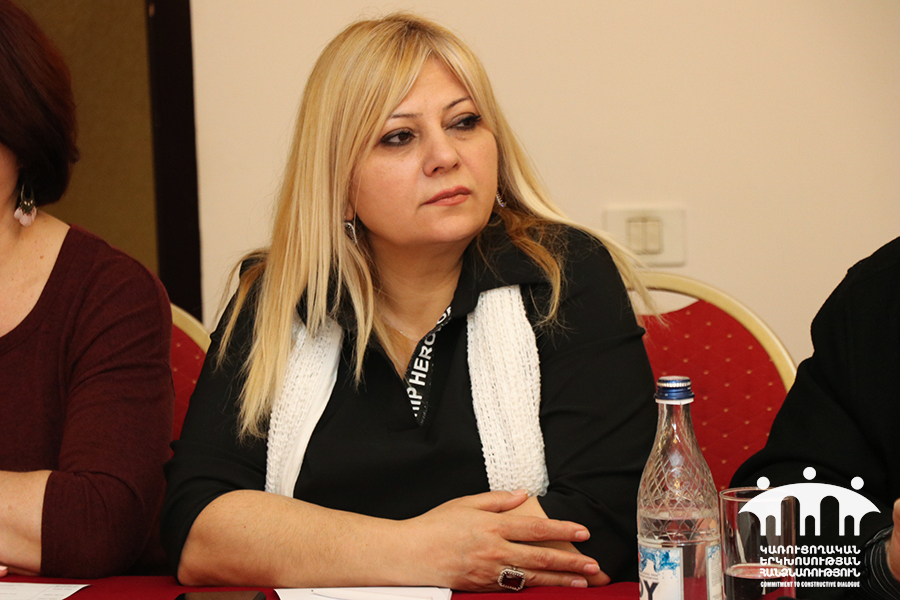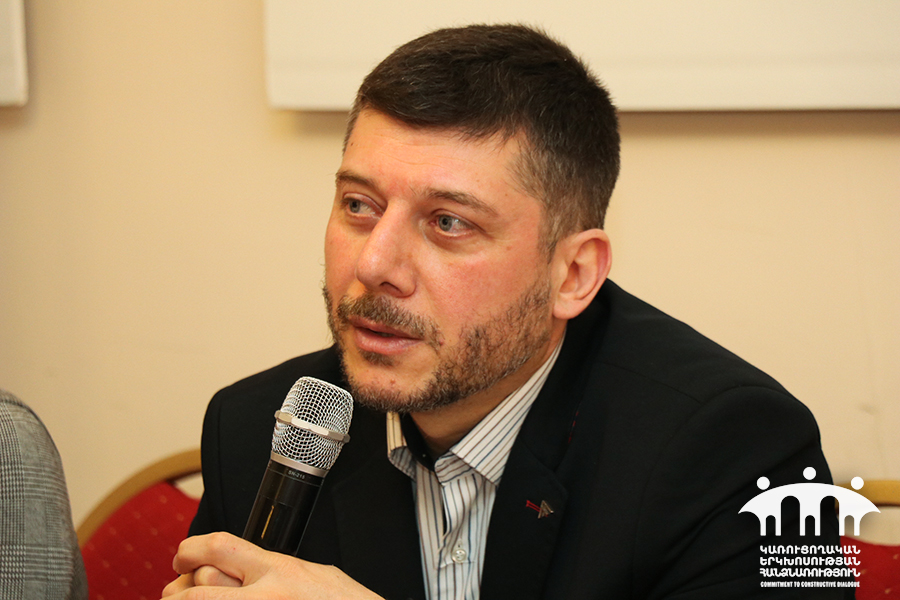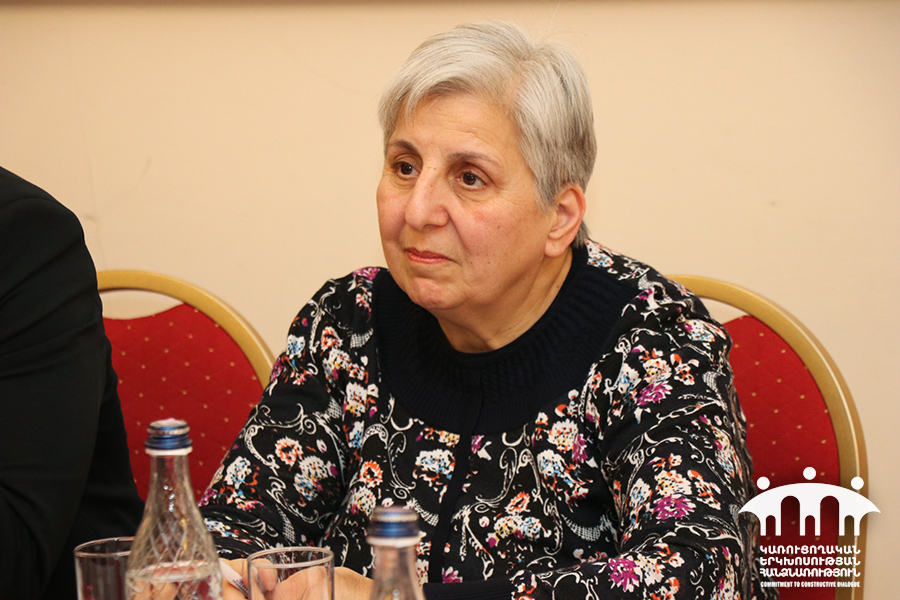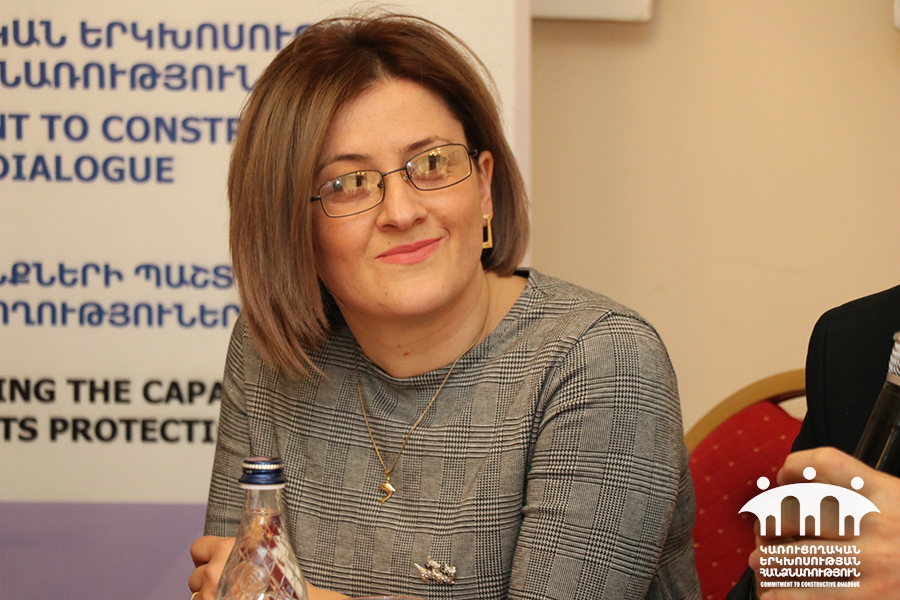On 22 March, the Human Rights Protection Coalition, which was formed in the scope of the “Human Rights: Monitoring and Publicity” project implemented with a grant allocated by the EU-funded “Commitment to Constructive Dialogue” project organised the discussion “Neglecting the Rights of Elderly People, the Problem of Indifference to them”
“The vocabulary used to describe the older generation in Armenia is so unpleasant that I do not want to repeat. I would suggest changing the vocabulary. There are many pleasant and good words such as: older generation, or at least elderly, I would offer the term a golden generation, because these people have accumulated experience and wisdom, there are also golden generation universities where they trained these people as we all need training,” Mr. Hovsep Khurshudyan President of “Free Citizen” Civic Initiatives Support Centre NGO said.
According to him, Armenia does not pay much attention to the issues of elderly people, although it is one of the priority social issues in European countries. Nevertheless, Hovsep Khurshudyan noted that he criticizes the European structures for not attaching importance to this issue in Armenia. “Being a member of the Eastern Partnership Steering Committee for two years, I have always tried to lobbying it. We had these tools in European structures, including in the intergovernmental platforms, which also included Armenian officials. Lobbying was made in the direction of the development of this, the elimination of problems for the elderly as well as in financial terms and in terms of the attitude and methodology. I realized that it was not a priority for the European Union in our countries,” he said.
Ms Anahit Gevorgyan, head of the Department of Elderly Issues at the Ministry of Labour and Social Affairs, was also present at the discussion. She mentioned that one can speak about the problems of elderly people, which can be neglected, indifference elements, but we should not say that elderly people in Armenia are left absolutely marginalised.
“In 2014, a meeting of the Council of Ministers in Vienna was a very important signal that we are moving from pure nursing care to active and healthy aging. Elderly people should not be dependent on the services or the will of the authorities, but they need a prosperous and secure environment for them to grow old and to live a healthy and active life. Here we attach importance to the role of communities,” Anahit Gevorgyan said.
Ms Anna Grigoryan, a senior counsellor on social and health services, coordinator of elderly people protection for the “Mission Armenia” NGO, presented the role of civil society organizations in protecting the elderly.
She noted that there are gaps in accessible healthcare. “The problems are numerous. There is accessibility and there is no quality in some places, and there is quality in another place but no access, and there is everything in one place but there is also a violation of the ethical code by the specialists. During the day-to-day work, when I accompany the elderly, often a therapist or a narrow specialist can quietly say “have you brought anything?” Anna Grigoryan mentioned when addressing a number of issues.
Notably, Mr. Hovsep Khurshudyan in addition to presenting the elderly issues, but presented proposals for their solution as well.
The “Commitment to Constructive Dialogue” project is implemented with the financial support of the European Union by a consortium of civil society organizations, which are the “Armenian Lawyers’ Association” NGO, Agora Central Europe o.p.s (an NGO from the Czech Republic), the “Armenian Center for Democratic Education-CIVITAS” NGO, the “International Center for Human Development” Public Organization, the “SME Cooperation Association” NGO and the Union of Communities of Armenia.
The overall objective of the project is to enhance the influence of CSOs and their coalitions (networks) on the public policy process. This will enable the organizations (that already work in target coalitions) to gain new resources, unite civil society experts and encourage them to participate in the formation of local and national policy agenda, identify the common problems and priorities and to apply to the government with constructive and strategic policy initiatives.
In the scope of the project, sub-grants have been provided to CSOs and CSO coalitions, aiming at public policy development and achieving tangible results in the 9 target sectors: justice, human rights, public finance management, business, education, social sector: social inclusion of children with disabilities, agriculture, economy, energy.

